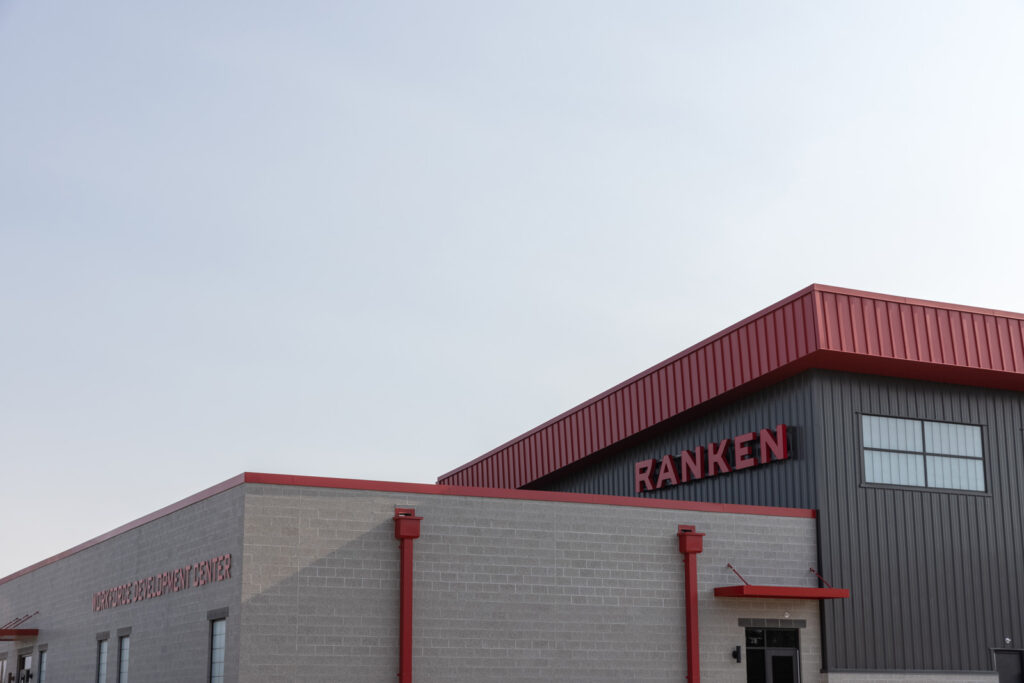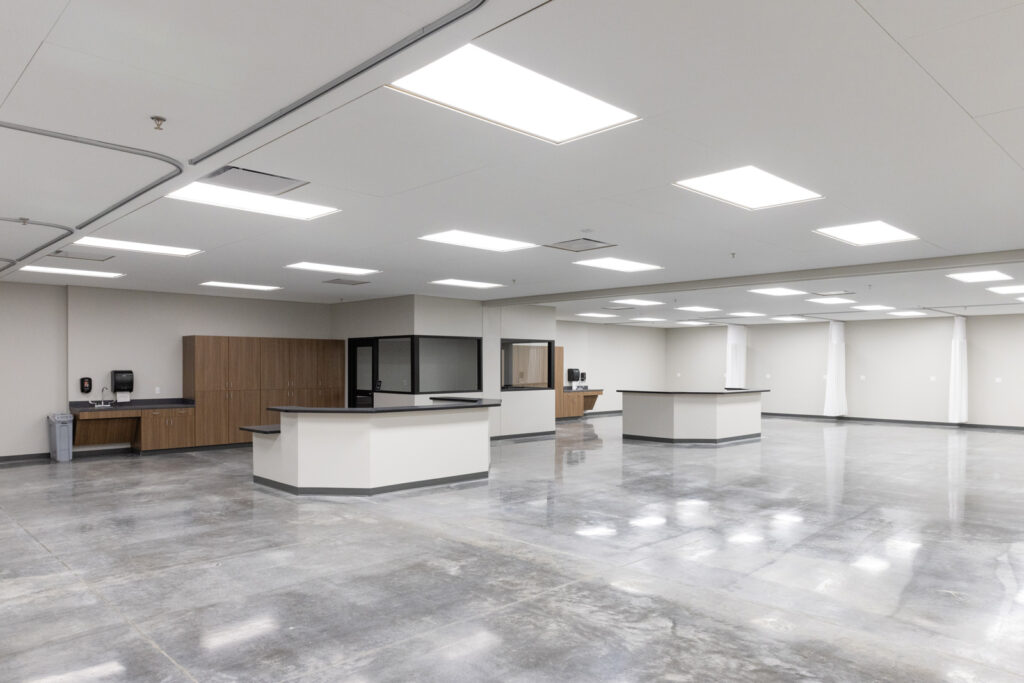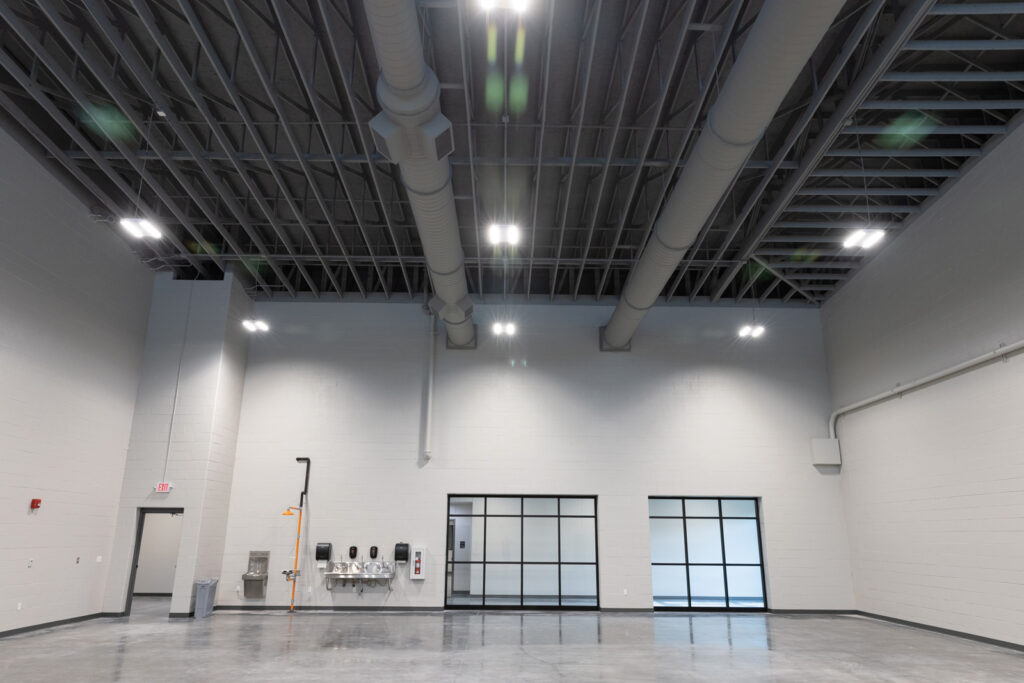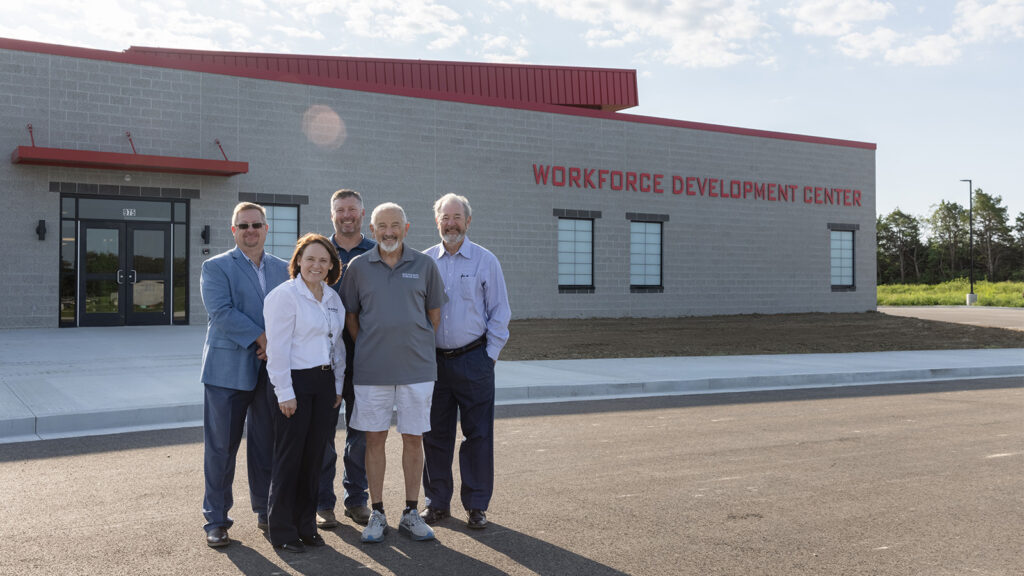Ranken Technical College’s new campus in Ashland is a major step in closing the skilled worker gap in mid-Missouri.
There’s no doubt that mid-Missouri is rich with educational opportunities. The region is also home to a wealth of small to large businesses and industries. But as is true across the country, there’s a shortage of talent with technical skills to fill job openings here.
St. Louis-based Ranken Technical College is hoping to help change that dynamic by opening a satellite campus in Ashland in 2024.
Bill Lloyd is past president of the Southern Boone Economic Development Council, and he’s seen parents and high school counselors funneling students mostly to four-year colleges and universities for the past 30 years. There has been a pervasive belief that you needed at least a bachelor’s degree to get a high-paying job.
The result? Many students didn’t pursue any education after high school while others enrolled in four-year institutions. And that left a gap in skilled workers in the trades and industry.
It’s a gap you hear about anecdotally. Lloyd’s air conditioner repairman can’t find someone who wants to take over his thriving heating, ventilation, and air conditioning business. Construction companies and automotive repair shops can’t find employees. Industries can’t find employees who know how to keep their equipment up and running. In response, the Southern Boone Economic Development Council, the city of Ashland, Southern Boone County Schools, and the Mid-Missouri Regional Planning Commission made a pitch to Ranken Technical College — and Ranken responded.
“We did a lot of legwork to visit a lot of industries,” Lloyd says. “At some point, early in the process, we had a meeting at the school in Ashland and I think we had about 80 people there from different industries from Centralia, Jeff City, Columbia, and Callaway County — so broad representation from mid-Missouri. That was what the Ranken president wanted to see.”




If You Build It, Ranken Will Come
Ranken, a private nonprofit institution, has been in St. Louis for more than a century. It currently serves more than 1,800 students at its main campus, and on satellite campuses in Troy, Wentzville, and Perryville. Ashland will be its fourth satellite when it opens to students in the spring of 2024.
Ranken doesn’t look for potential campus sites to build on. Construction is a partnership with the community. The shiny new building and five-acre campus on the east side of U.S. Highway 63 is an acknowledgment of what federal and state governments, business and industry, and local residents can do when they join forces for a common cause.
An impressive $8 million was raised to build the campus. A $4.5 million grant from the U.S. Department of Commerce’s Economic Development Administration was the linchpin, but far short of the goal. The State of Missouri kicked in $1.5 million. The land, appraised at roughly $1 million, was donated.
“The school superintendent was involved, but it was a community group – we didn’t even have a name, really. We were just a community group,” Lloyd recalls. “We hired a fundraising company to kickstart things. The rest we raised by going out and knocking on doors and presenting the case that we’re trying to bring technical training closer to you.”
Most of those doors were busineses and industries in the six counties served by the Mid-Missouri Regional Planning Commission, including Boone, Callaway, Cole, Cooper, Howard, and Moniteau. Companies dug into their pockets to help make the campus happen. And the Southern Boone School District is fully invested. The district will maintain the new facility and campus for the first three years. Ranken will provide tools, equipment, instruction, and administration. After three years, Ranken assumes responsibility for it all.
Upskilling the Workforce
Shannon Brueggemann is Ranken’s vice president for education. She says Ranken is proud of its high graduate placement rate, which doesn’t happen by accident. Where the college has placed its four satellite campuses is where there is a demonstrated need for that type of skilled workforce.
“When you bring high-quality technical education to the area, industry feels more confident they can find the needed skilled workforce that will allow them to grow,” Brueggemann says. “These community leaders visited our main campus and have even met with local industry to grasp the level of technical education we provide.”
Lloyd points out that location is a far more critical factor in technical education than attending a university. Ranken students will be able to hold a full- or part-time job while also working toward a certificate or degree. But even those students attending the Ashland campus full-time need to be able to stay close to home. And that’s how mid-Missouri business and industry will recoup their investment in the Ashland campus.
“If I’m from Columbia and I go to St. Louis to get my training and work on an internship there, then someone there offers me a job,” Lloyd explains. “But most people want to get back closer to home to be near family or friends. I think Ranken’s satellite campus here allows you to get the training you need and hook up with an internship with a company nearby. The prospect of having a good long-term employee improves.”
Room to grow
Ranken currently offers more than 35 certificate and degree programs. Brueggemann says the Ashland campus is slated to begin with four in the spring: Carpentry and building construction technology; industrial engineering technology; fabrication and welding technology; and, information technology. Ranken is partnering with another local area college to launch an entry-level nursing program in the fall 2024 semester. Planning assessments indicated these programs had the highest need in the area, but more programs will be offered in the future.
Brueggemann says day and evening student enrollment estimates are 30 to 40 in the spring, growing to 40 to 50 next fall. Capacity for the Ashland campus is about 150 students. Ranken is searching for instructors which, Brueggemann says, is challenging when the targeted industries are already facing talent shortages.
“Ranken requires technical faculty to have real-world work experience,” she says. “Depending on the skills the faculty possess and their availability, we will likely start with three to four full-time faculty and one to two adjunct faculty.”
Overall administration of the campus will be handled from the St. Louis main campus. The location will have its own admission counselor and student success advisor who will assist students with scheduling, financial aid, and communication with St. Louis, along with an assigned instructional coordinator.
Quickly creating the skilled workforce mid-Missouri needs right now? Ranken has been doing it for more than 100 years. Now, it’s doing it at the center of it all.
Ranken Technical College
314-286-3331
ranken.edu









